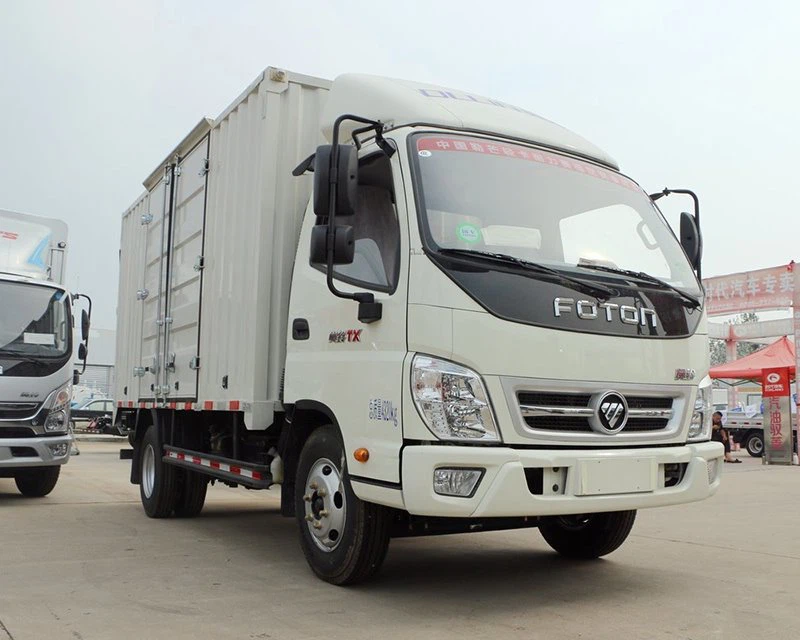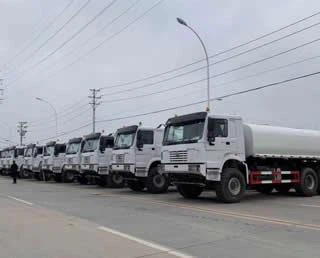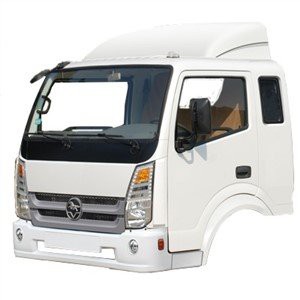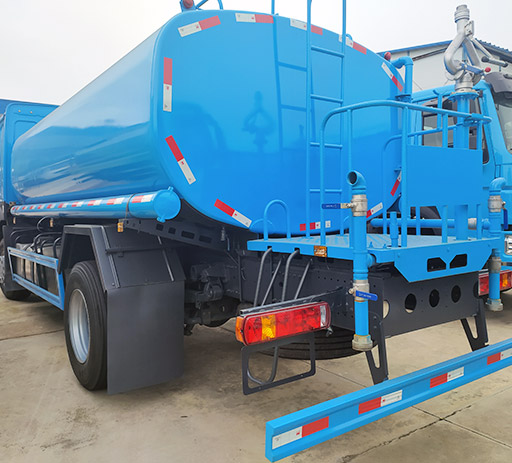Everything You Need to Know About Small European Trucks

Introduction
Small European trucks have become increasingly popular in various sectors, from logistics to personal use. Their compact size, fuel efficiency, and versatile designs make them ideal for navigating narrow streets and urban environments. In this article, we will explore the advantages, types, and practical uses of small European trucks, as well as offer tips on selecting the right vehicle for your needs. Whether you’re in the market for a new truck or simply looking to learn more about these efficient machines, this comprehensive guide is for you.
The Advantages of Small European Trucks
Small European trucks come with a variety of benefits that make them appealing to both businesses and individuals.
1. Maneuverability
One of the primary advantages of small trucks is their ability to navigate through tight spaces and congested urban environments. Their compact dimensions allow for easy parking and efficient loading and unloading in busy areas.

2. Fuel Efficiency
With rising fuel costs, many consumers are looking for vehicles that offer better fuel economy. Small European trucks typically have smaller engines that consume less fuel compared to larger trucks, making them a cost-effective choice for drivers.
3. Versatility
Small European trucks are available in diverse configurations, including vans, pickups, and box trucks, making them versatile for various business and personal usages. Their adaptability makes them suitable for delivery services, trades, and recreational activities.
4. Eco-Friendliness
Many small European trucks are designed with eco-friendly features, including lower emissions and lightweight materials. This commitment to reducing environmental impact aligns with the growing demand for sustainable transportation options.
5. Cost-Effective Maintenance
Maintenance costs for small trucks tend to be lower than for larger vehicles. Simpler designs often result in fewer components that can malfunction, and many parts are readily available and affordable.

Types of Small European Trucks
When it comes to small European trucks, there are several popular types, each serving different purposes.
1. Compact Vans
Compact vans, such as the Volkswagen Transporter and Ford Transit Custom, are excellent for businesses that require a balance of cargo space and passenger capacity. These trucks often come with customizable interiors, allowing for shelving and storage options.
2. Small Pickups
Small pickups like the Renault Alaskan and Fiat Fullback are perfect for personal or light commercial use. With their open bed design, they can accommodate larger items, while still being easy to drive in urban settings.
3. Chassis Cabs
Chassis cabs, such as the Iveco Daily, provide a platform where businesses can create their own custom vehicle setups. This type of truck is useful for specialized trades that require specific tooling or equipment space.
4. Box Trucks
Box trucks, exemplified by models like the Peugeot Boxer, offer significant cargo space in a compact package. They are ideal for moving furniture or transporting goods for businesses that demand a protected cargo area.
Practical Examples of Small European Truck Uses
Small European trucks can be utilized across different sectors. Here are some practical examples:
1. Deliveries and Logistics
Small trucks are commonly used by delivery companies to transport packages within urban areas. Their agility allows delivery workers to quickly and efficiently complete their routes, even in heavy traffic.
2. Trades and Construction
Construction workers and tradespeople often use small trucks for transporting tools and materials. The ability to fit into tight job sites can help keep projects on schedule.
3. Catering Services
Catering companies can benefit from using small box trucks for food transport. With a built-in refrigeration unit, these trucks can travel to events while keeping food at safe temperatures.
4. Personal Use
For families and individuals, small trucks can serve various personal needs, such as moving furniture or tools for DIY projects. Their combination of passenger and cargo capabilities makes them ideal for weekend adventures or home improvement projects.
Factors to Consider When Choosing a Small European Truck
Selecting the right small European truck involves evaluating several factors to ensure it meets your needs.
1. Payload Capacity
Consider how much weight you will frequently carry. Each truck has its specific payload capacity, so choose one that can accommodate your typical load requirements.
2. Engine Efficiency

Look for trucks with efficient engines that provide a good balance between power and fuel economy. Diesel engines may offer better fuel efficiency for long hauls, while petrol engines may be ideal for short urban trips.
3. Safety Features
Modern small trucks come equipped with safety features like parking sensors, ABS, and stability control. Ensuring your truck has these features can provide peace of mind while driving.
4. Insurance Costs
Insurance costs can vary significantly among small truck models. Research insurance premiums before purchasing to avoid unexpected expenses.
Where to Buy Small European Trucks
Acquiring a small European truck can be done through various channels:
1. Dealerships
Visit authorized dealerships to test drive different models, learn about financing options, and receive professional guidance tailored to your needs.
2. Online Marketplaces
Websites like autoTrader and eBay offer substantial selections of new and used trucks. Always consider vehicle history reports if buying used.
3. Auctions
Government or corporate auctions can often yield good deals on small trucks. However, carefully inspect any vehicle before bidding.
4. Rent or Lease Options
If your needs are temporary, consider renting or leasing a small truck. Many rental companies offer flexible terms suitable for short-term use.
Maintenance Tips for Small European Trucks
To keep your small European truck in top condition, follow these essential maintenance tips:
1. Regular Oil Changes
Change the engine oil and filter according to your manufacturer’s recommendations. Regular oil changes help ensure optimal engine performance.
2. Check Tire Pressure
Maintaining proper tire pressure improves fuel efficiency and tire lifespan. Check them monthly and tire tread regularly for signs of wear.
3. Brake Inspection
Brakes are crucial for vehicle safety. Inspect brakes periodically for any signs of wear and replace pads or rotors as needed.
4. Keep It Clean
Regularly wash your truck to protect its exterior. Consider professional detailing periodically to maintain the paintwork and interior.
FAQ Section
1. What is the average cost of a small European truck?
The average cost varies greatly depending on the model and features. New small European trucks can range from €20,000 to €35,000, while used models can be found for significantly less.
2. Are small European trucks suitable for long-distance travel?
Yes, many small European trucks offer comfortable driving experiences and good fuel economy, making them suitable for long-distance travel.
3. Do small European trucks have good resale value?
Small European trucks tend to maintain good resale value due to their popularity, efficiency, and demand in various markets.
4. Can small European trucks be used for towing?
Many small trucks are equipped with towing capacities sufficient for light to moderate towing needs. Always check the manufacturer’s specifications for individual models.
5. What types of products are best suited for small European trucks?
Small European trucks are ideal for delivering packages, transporting tools, and moving furniture, thanks to their versatile cargo design.
6. Are there financing options available for small European trucks?
Yes, many dealerships offer financing options, and you can also consider bank loans or leasing opportunities based on your financial situation.
